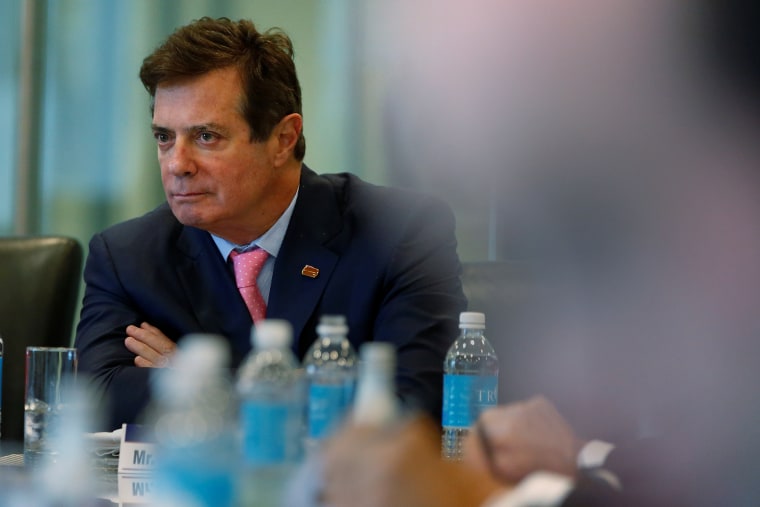As recently as a few months ago, Donald Trump's presidential campaign appeared to be at odds with itself, with a civil war of sorts between campaign manager Corey Lewandowski and campaign chairman Paul Manafort.
In June, the Republican presidential hopeful parted ways with Lewandowski. As of this morning, Manafort is out, too.
Donald Trump campaign chair Paul Manafort resigned from the campaign Friday morning. The move comes days after a campaign shake-up that brought two new members to the top of the organization, including new campaign manager Kellyanne Conway and Breitbart chairman Steve Bannon. In a statement Trump said: "This morning Paul Manafort offered, and I accepted, his resignation from the campaign. I am very appreciative for his great work in helping to get us where we are today, and in particular his work guiding us through the delegate and convention process. Paul is a true professional and I wish him the greatest success."
Whether Manafort stepped down voluntarily (maybe he didn't want to be associated with a likely defeat) or was pushed out (he was at the center of many ongoing controversies and wasn't leading the operation to success) is, at least for now, unclear.
Either way, Manafort's resignation comes just two days after the Associated Press reported that the Republican lobbyist "helped a pro-Russian governing party in Ukraine secretly route at least $2.2 million in payments to two prominent Washington lobbying firms in 2012, and did so in a way that effectively obscured the foreign political party's efforts to influence U.S. policy."
Making matters worse, Politico reported late yesterday, "In an effort to collect previously undisclosed millions of dollars he's owed by an oligarch-backed Ukrainian political party, Donald Trump's campaign chairman Paul Manafort has been relying on a trusted protégé whose links to Russia and its Ukrainian allies have prompted concerns among Manafort associates, according to people who worked with both men."
Manafort's sudden departure marks the end of a pretty wild ride. Just five months ago, the GOP lobbyist joined Team Trump to help oversee the candidate's convention operations and shore up Trump's delegate strategy. It wasn't long before Manafort's influence grew, and by June, he was effectively in charge of the campaign, hoping to position Trump as a competitive general-election candidate.
Those efforts failed. Worse, Manafort's foreign lobbying work and ties to Vladimir's Putin's government made him an unwelcome -- and highly controversial -- distraction.
As for the bigger picture, Trump has boasted many times that he believes in hiring "the best people." After three staff overhauls in five months, and a campaign operation that's generally been in disarray for much of the year, Team Trump appears to lack any kind of cohesion or direction -- which only reinforces concerns about the kind of White House the amateur candidate would run.
As CNBC's John Harwood noted, it's "not crazy for voters to wonder what continuous campaign turmoil says about Trump's ability to be chief executive of United States government."
